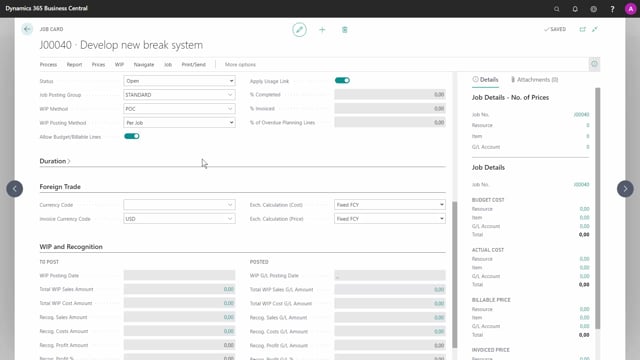
How do you invoice a job in another currency?
If you want to handle your jobs with currencies other than your local currency, that’s possible.
This is what happens in the video
Here we will look at invoicing currency. I will create a new job. Let the system give in the next available number and enter description.
Maybe our Bike Company here is helping to develop a new brake for a bicycle, for an American customer. And I will choose the customer. In this case, I will choose an American customer.
And of course later, I might be interested in creating a lot of job task numbers to structure the project, but for now, I’ll just create one.
And I’ll just call it project, and I’m checking that it’s the type posting, because we need one of those in order to post transactions to this job.
When we’re talking about currency codes on jobs, the foreign trade tab is where you want to go.
In this case, we’re focused on invoicing currency code, and it has already been inherited from the customer card.
All invoices created for this job, will be handled in US dollars, and that makes sense if we want to invoice a US Customer in US Dollars.
You can see another video on these exchange rate calculations, and whether you want fixed foreign currency, or fixed local currency.
Often when you invoice in the customer’s currency, whether fixed foreign currency. So, if we agreed we would invoice $1000, they will still be invoiced $1,000 if we change planning line dates and so on.

